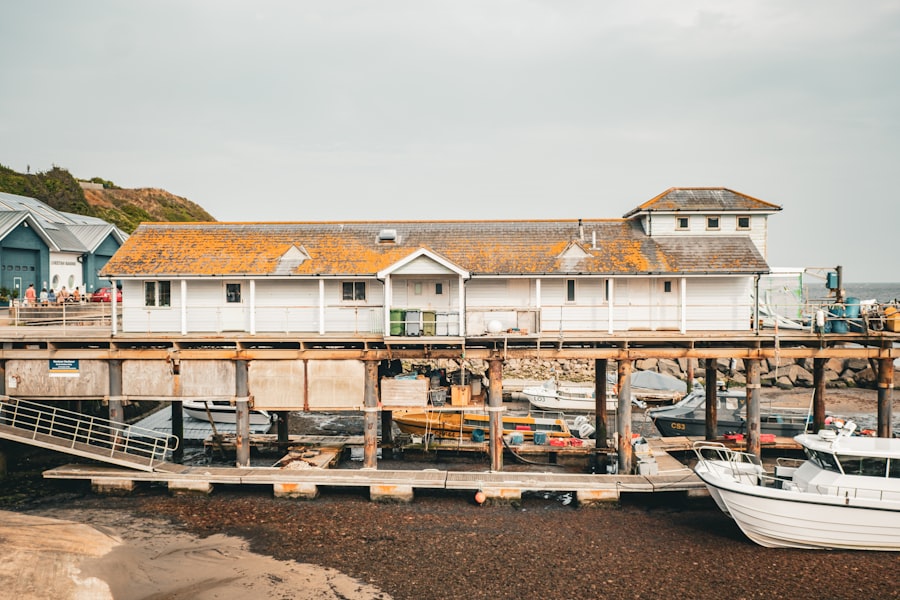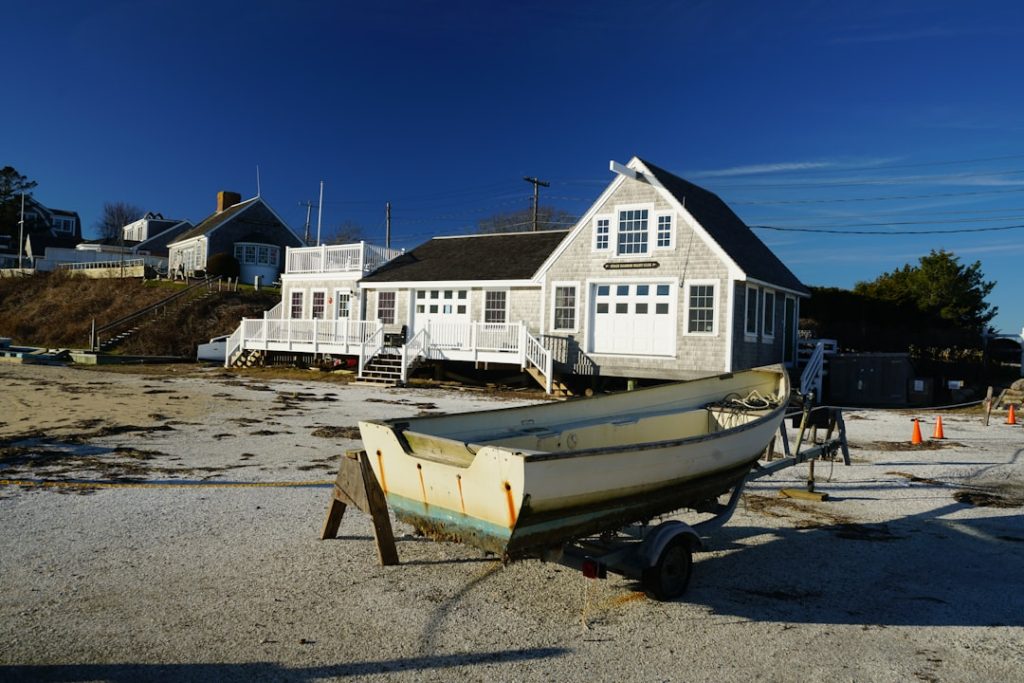Houseboat living has long captivated the imagination of those seeking a unique lifestyle that blends the tranquility of water with the comforts of home. The allure of waking up to the gentle lapping of waves against the hull, surrounded by picturesque views, is a dream for many. This lifestyle offers an escape from the hustle and bustle of urban life, providing a serene environment where one can connect with nature.
The charm of houseboat living lies not only in its scenic beauty but also in the sense of freedom it embodies. The ability to change your surroundings at will, moving from one beautiful location to another, is a significant draw for adventurers and those with a wanderlust spirit. Moreover, houseboat living fosters a deep connection with the environment.
Residents often find themselves more attuned to the rhythms of nature, experiencing firsthand the changing tides, weather patterns, and wildlife that inhabit the waterways. This lifestyle encourages a slower pace of life, where one can savor moments spent fishing off the deck, watching sunsets over the water, or simply enjoying the sound of rain on the roof. The appeal of houseboat living is not just about the physical space; it’s about embracing a lifestyle that prioritizes simplicity, adventure, and a profound appreciation for the natural world.
Key Takeaways
- Houseboat living offers a unique lifestyle combining mobility, nature, and comfort.
- Benefits include scenic views, a close-knit community, and potential cost savings.
- Popular destinations for houseboats include coastal cities and lakes with vibrant boating cultures.
- The houseboat market is experiencing growth driven by increased interest in alternative living spaces.
- Key considerations when buying a houseboat involve maintenance, legal regulations, and lifestyle compatibility.
Benefits of Living on a Houseboat
Living on a houseboat comes with a myriad of benefits that extend beyond the picturesque views and tranquil surroundings. One of the most significant advantages is the potential for reduced living costs. While the initial investment in a houseboat can be substantial, many find that ongoing expenses such as property taxes and maintenance costs are lower than those associated with traditional homes.
Additionally, houseboat living often eliminates the need for expensive land-based utilities, as many modern houseboats are equipped with solar panels and water filtration systems, allowing for sustainable living. Another compelling benefit is the sense of community that often develops among houseboat residents. Many marinas and houseboat communities foster a close-knit atmosphere where neighbors become friends.
This camaraderie can lead to shared experiences, such as group outings, fishing trips, or communal barbecues on the docks. The lifestyle encourages social interaction and collaboration, creating a supportive environment that can be particularly appealing for families or individuals seeking connection in an increasingly digital world.
Popular Houseboat Destinations

Certain locations around the globe have become renowned for their vibrant houseboat communities and stunning natural beauty. One such destination is Amsterdam, where houseboats are an integral part of the city’s charm. The canals are lined with colorful houseboats that serve as both residences and tourist attractions.
Living on a houseboat in Amsterdam offers residents a unique perspective on city life, with easy access to cultural landmarks, cafes, and parks while enjoying the peacefulness of waterway living. In North America, Lake Powell stands out as a premier houseboating destination. Nestled in the stunning red rock canyons of Utah and Arizona, this expansive reservoir offers countless opportunities for exploration and adventure.
Houseboaters can navigate through narrow canyons, discover hidden coves, and enjoy water sports such as wakeboarding and kayaking. The breathtaking scenery combined with the freedom to roam makes Lake Powell a favorite among those who embrace life on the water.
The Houseboat Market: Current Trends and Growth
| Metric | Value | Year | Notes |
|---|---|---|---|
| Global Market Size | 1.2 Billion | 2023 | Estimated market value |
| Expected CAGR | 7.5% | 2023-2028 | Compound annual growth rate |
| Top Region by Market Share | North America | 2023 | Largest consumer base |
| Popular Houseboat Type | Luxury Floating Villas | 2023 | High demand in tourism sector |
| Average Price Range | 150,000 – 500,000 | 2023 | Varies by size and amenities |
| Key Growth Driver | Rising Eco-tourism | 2023 | Increased interest in sustainable travel |
| Market Challenges | Regulatory Restrictions | 2023 | Local zoning and environmental laws |
The houseboat market has experienced notable growth in recent years, driven by changing lifestyles and an increasing desire for alternative living arrangements. As urban areas become more congested and housing prices soar, many individuals are seeking innovative solutions to their housing needs. Houseboats offer an appealing alternative that combines affordability with mobility.
This trend has led to an uptick in both new builds and renovations of existing vessels, as manufacturers respond to consumer demand for modern amenities and eco-friendly designs. Additionally, advancements in technology have played a crucial role in shaping the houseboat market. Modern houseboats are now equipped with smart home technology that allows residents to control lighting, heating, and security systems remotely.
Furthermore, innovations in sustainable materials and energy-efficient systems have made it easier for houseboat owners to minimize their environmental impact while enjoying all the comforts of home. As more people prioritize sustainability in their lifestyle choices, the appeal of eco-friendly houseboats continues to grow.
Considerations When Purchasing a Houseboat
Purchasing a houseboat requires careful consideration and planning to ensure that it meets both practical needs and lifestyle aspirations. One of the first factors to evaluate is budget; potential buyers must account for not only the purchase price but also ongoing costs such as docking fees, insurance, maintenance, and utilities. Understanding these financial commitments is essential for making an informed decision that aligns with one’s long-term financial goals.
Another critical consideration is location. Prospective houseboat owners should research various marinas or waterfront areas to determine which locations best suit their lifestyle preferences. Factors such as proximity to amenities, recreational opportunities, and community dynamics can significantly impact one’s experience living on a houseboat.
Additionally, prospective buyers should assess the condition of the vessel itself—considering factors like age, structural integrity, and necessary repairs—before making a purchase.
Houseboat Living: Community and Lifestyle

The lifestyle associated with houseboat living is often characterized by a strong sense of community among residents. Many marinas host events that encourage social interaction among boaters, fostering friendships that can last for years. From potluck dinners to holiday celebrations on the docks, these gatherings create opportunities for residents to bond over shared experiences and interests.
This sense of belonging can be particularly beneficial for those who may feel isolated in traditional housing situations. Moreover, houseboat living often promotes an active lifestyle centered around outdoor activities. Residents frequently engage in fishing, swimming, kayaking, or simply enjoying leisurely strolls along the waterfront.
The proximity to nature encourages individuals to spend more time outdoors, leading to improved physical health and mental well-being. This lifestyle shift can be transformative for many people, offering a refreshing break from sedentary routines often associated with urban living.
Houseboat Maintenance and Upkeep
Maintaining a houseboat requires diligence and attention to detail to ensure its longevity and safety. Regular upkeep is essential to prevent issues such as leaks or mold growth that can arise from prolonged exposure to water. Owners should establish a routine maintenance schedule that includes checking for signs of wear on the hull, inspecting plumbing systems, and ensuring that electrical systems are functioning properly.
Additionally, regular cleaning is crucial; algae growth can accumulate on the exterior if not addressed promptly. Seasonal preparations are also vital for houseboat maintenance. In colder climates, winterizing the boat involves draining water systems to prevent freezing and damage during harsh weather conditions.
Conversely, in warmer months, ensuring proper ventilation and cooling systems are operational helps maintain comfort levels inside the vessel. By staying proactive about maintenance tasks, houseboat owners can enjoy their unique lifestyle without facing unexpected challenges.
The Future of the Houseboat Market
Looking ahead, the future of the houseboat market appears promising as more individuals seek alternative living arrangements that prioritize sustainability and mobility. As urbanization continues to rise and housing affordability becomes an increasing concern, houseboats offer an attractive solution that combines affordability with an adventurous lifestyle. The trend toward minimalism also aligns well with houseboat living; many people are choosing to downsize their possessions in favor of experiences rather than material goods.
Furthermore, advancements in technology will likely continue to shape the future of houseboats. Innovations in renewable energy sources—such as solar panels—will enable residents to live more sustainably while enjoying modern conveniences. As manufacturers respond to consumer demands for eco-friendly designs and smart home features, we can expect to see an influx of new models that cater to diverse lifestyles and preferences.
In conclusion, houseboat living presents a unique blend of adventure, community, and connection with nature that appeals to many individuals seeking an alternative lifestyle. With ongoing trends pointing toward growth in this market segment, it is clear that houseboats will continue to capture the hearts of those yearning for freedom on the water.


